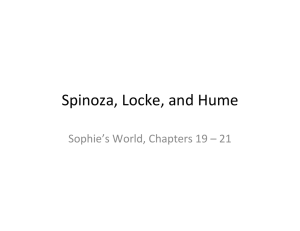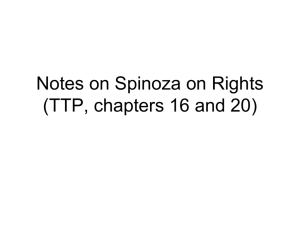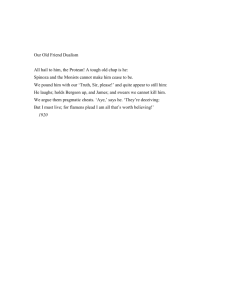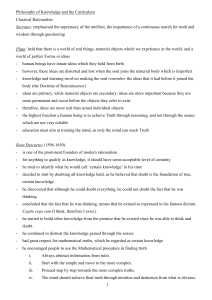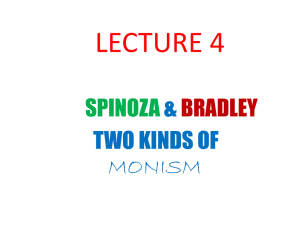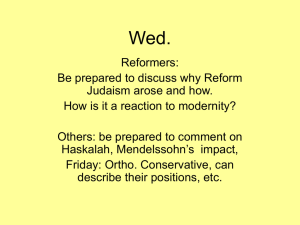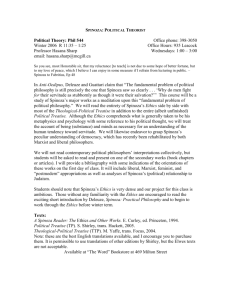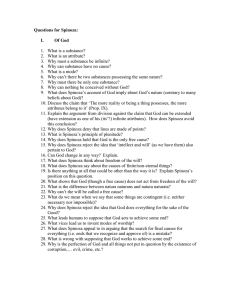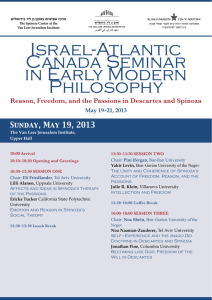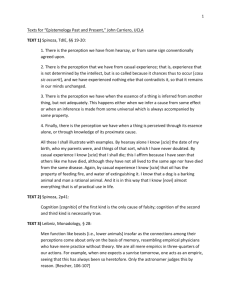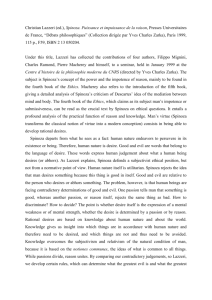Philosophy 302 (Great Philosophers)
advertisement
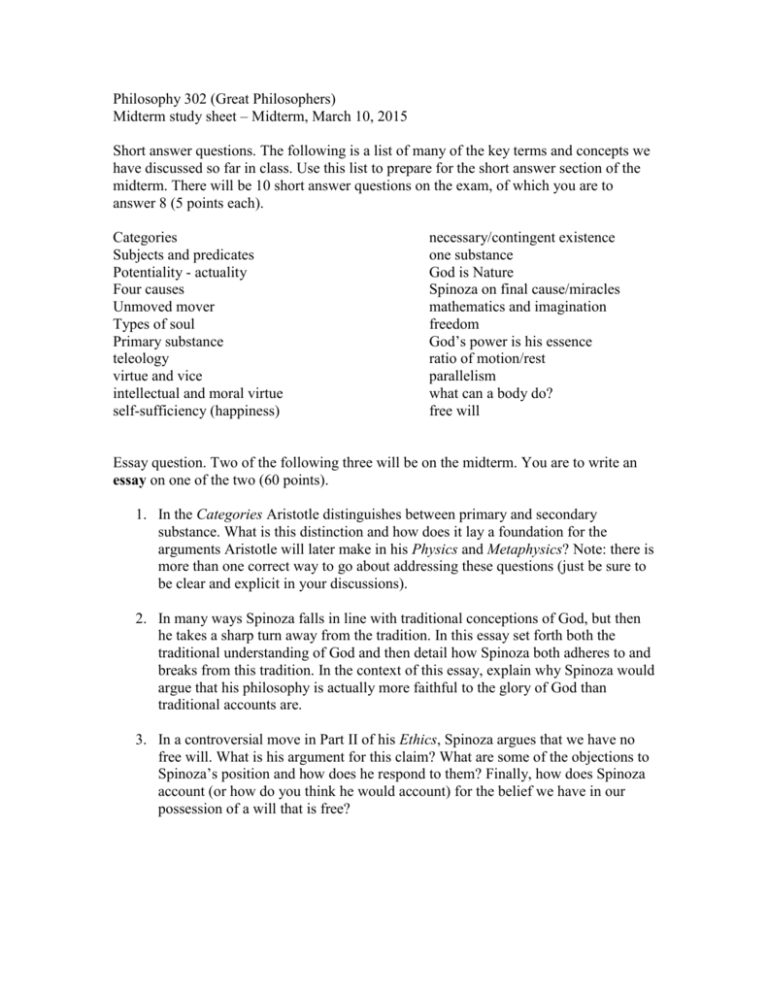
Philosophy 302 (Great Philosophers) Midterm study sheet – Midterm, March 10, 2015 Short answer questions. The following is a list of many of the key terms and concepts we have discussed so far in class. Use this list to prepare for the short answer section of the midterm. There will be 10 short answer questions on the exam, of which you are to answer 8 (5 points each). Categories Subjects and predicates Potentiality - actuality Four causes Unmoved mover Types of soul Primary substance teleology virtue and vice intellectual and moral virtue self-sufficiency (happiness) necessary/contingent existence one substance God is Nature Spinoza on final cause/miracles mathematics and imagination freedom God’s power is his essence ratio of motion/rest parallelism what can a body do? free will Essay question. Two of the following three will be on the midterm. You are to write an essay on one of the two (60 points). 1. In the Categories Aristotle distinguishes between primary and secondary substance. What is this distinction and how does it lay a foundation for the arguments Aristotle will later make in his Physics and Metaphysics? Note: there is more than one correct way to go about addressing these questions (just be sure to be clear and explicit in your discussions). 2. In many ways Spinoza falls in line with traditional conceptions of God, but then he takes a sharp turn away from the tradition. In this essay set forth both the traditional understanding of God and then detail how Spinoza both adheres to and breaks from this tradition. In the context of this essay, explain why Spinoza would argue that his philosophy is actually more faithful to the glory of God than traditional accounts are. 3. In a controversial move in Part II of his Ethics, Spinoza argues that we have no free will. What is his argument for this claim? What are some of the objections to Spinoza’s position and how does he respond to them? Finally, how does Spinoza account (or how do you think he would account) for the belief we have in our possession of a will that is free?
